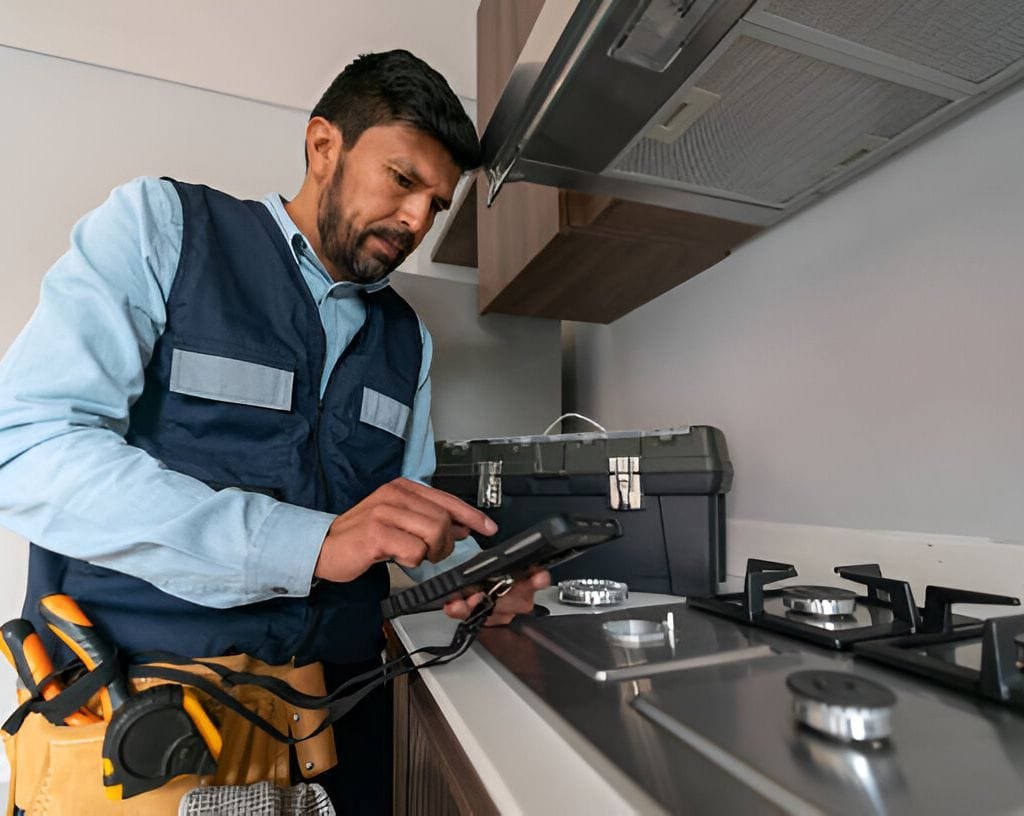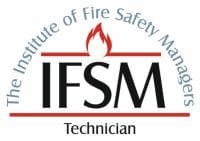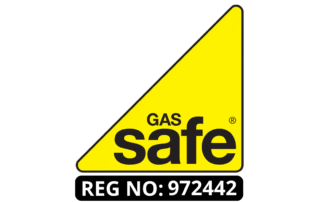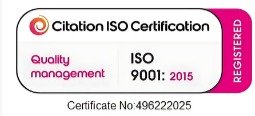
A Gas Safety Certificate is more than just a piece of paper; it’s an essential assurance of safety for gas appliances in your property. As a landlord, you need to understand the legal obligations tied to this certificate, including the rigorous inspection process. Without it, you risk serious consequences that can jeopardize tenant safety and your reputation. What exactly does the inspection entail, and how can it impact you?
Table of Contents
Key Takeaways
- A Gas Safety Certificate confirms the safety and compliance of gas appliances and installations after inspection by a qualified engineer.
- It is a legal requirement for landlords to conduct annual gas safety checks and provide tenants with the certificate within 28 days.
- The certificate indicates that gas pressures, ventilation, and appliance conditions have been thoroughly evaluated for safety.
- Non-compliance can lead to severe legal penalties, including fines, imprisonment, and voided insurance policies.
- Regular certification enhances tenant safety, mitigates risks of leaks or explosions, and fosters trust in landlord-tenant relationships.
Understanding the Basics of a Gas Safety Certificate
When you own or manage a property that uses gas, understanding the basics of a gas safety certificate is essential for ensuring safety and compliance.
This certificate confirms that your gas appliances, flues, and installations meet safety regulations. It’s issued after a qualified Gas Safe registered engineer conducts a thorough inspection, evaluating elements like gas pressures, ventilation, and the condition of appliances.

The certificate is valid for 12 months, requiring annual renewals to maintain compliance. Failing to obtain or renew this certificate can lead to dangerous situations, including gas leaks or explosions.
Furthermore, it protects you legally and enhances tenant confidence in your property, demonstrating your commitment to safety and regulatory adherence.
Legal Requirements for Landlords
Obtaining a gas safety certificate isn’t just a best practice; it’s a legal obligation for landlords. Under the Gas Safety (Installation and Use) Regulations 1998, you’re required to guarantee that any gas appliances, fittings, and flues you provide for your tenants are safe.
This means conducting an annual gas safety check by a qualified Gas Safe registered engineer. You must keep a record of these checks and provide tenants with a copy of the certificate within 28 days of the inspection, or before they move in.
Failure to comply can lead to severe penalties, including fines or imprisonment. Staying compliant not only protects your tenants’ safety but also safeguards your legal standing as a landlord in the rental market.
The Inspection Process Explained
While guaranteeing the safety of your gas appliances, you need to understand the inspection process thoroughly.
A qualified Gas Safe registered engineer will conduct the inspection, beginning with a visual assessment of all gas appliances, including boilers, cookers, and heaters. They’ll check for signs of leaks, corrosion, or other damage.
Next, the engineer will test the ventilation systems to guarantee proper airflow. They’ll measure the gas pressure and check the combustion performance of each appliance, assuring they operate within manufacturer specifications.
Additionally, flue systems will be examined for blockages or leaks. After completing all checks, the engineer will compile a detailed report, highlighting any issues and confirming compliance with safety regulations.
This meticulous process safeguards your environment and occupants.
Consequences of Not Having a Gas Safety Certificate
Failing to secure a gas safety certificate can lead to severe consequences, both legally and for your safety.
Without this certification, you expose yourself to significant risks, including:
- Legal Penalties: You could face hefty fines or legal action for non-compliance with gas safety regulations.
- Insurance Issues: Lack of certification might void your insurance policy, leaving you financially vulnerable in case of an incident.
- Safety Hazards: Unchecked gas appliances can cause leaks, leading to potential explosions or carbon monoxide poisoning.
In essence, neglecting to obtain a gas safety certificate not only jeopardizes your legal standing but also compromises the well-being of everyone in your premises.
Prioritizing this certification is essential for maintaining a secure environment.
Ensuring Tenant Safety and Peace of Mind
Ensuring that your property complies with gas safety regulations not only protects you from legal repercussions but also greatly enhances the safety and peace of mind of your tenants.
A valid gas safety certificate confirms that all gas appliances, fittings, and flues have undergone thorough inspection and testing by a qualified engineer. This certification assures tenants that you prioritize their well-being, as it signifies that potential hazards such as gas leaks or carbon monoxide emissions are mitigated.

Regular maintenance checks not only sustain appliance efficiency but also reduce the risk of costly repairs and tenant displacement.
Ultimately, fostering a safe living environment builds trust, encouraging long-term tenancy and positive landlord-tenant relationships, which are essential for your property’s success.
Frequently Asked Questions
How Often Should I Renew My Gas Safety Certificate?
You should renew your gas safety certificate annually. Regular inspections guarantee your gas appliances operate safely and efficiently, minimizing risks of leaks or malfunctions, providing peace of mind for you and your tenants or household members.
Can I Perform My Own Gas Safety Checks?
You can’t perform your own gas safety checks unless you’re a qualified Gas Safe registered engineer. Safety regulations require professional expertise to identify hazards and guarantee compliance, protecting you from potential risks and legal repercussions.
What Qualifications Should a Gas Engineer Have?
To guarantee safety and compliance, a gas engineer must possess a Gas Safe Register registration, relevant qualifications like NVQ or City & Guilds, and ongoing training to stay updated on regulations and safety standards.
Is a Gas Safety Certificate Required for Commercial Properties?
Yes, you’re required to obtain a gas safety certificate for commercial properties. This certificate guarantees compliance with regulations, verifies safety measures, and protects tenants and employees from potential gas-related hazards, thereby safeguarding your business’s reputation.
How Much Does a Gas Safety Inspection Typically Cost?
A gas safety inspection typically costs between £50 and £100, depending on your location and the complexity of the system. Investing in this service guarantees compliance and enhances safety for all occupants in your property.
Conclusion
In summary, obtaining a Gas Safety Certificate isn’t just a legal obligation; it’s an essential step in ensuring the safety of your tenants and your property. Regular inspections by a qualified Gas Safe registered engineer help prevent dangerous situations, such as gas leaks and carbon monoxide poisoning. By prioritizing this certification, you not only comply with the law but also foster trust with your tenants, providing them the peace of mind they deserve in their home.








